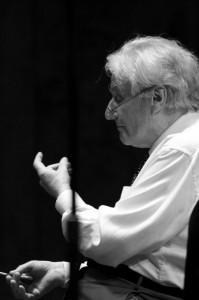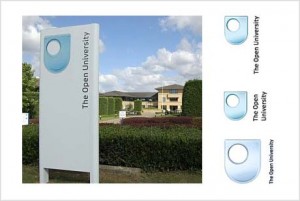 The secret of life can be found in baseball.
The secret of life can be found in baseball.
Oh, not today’s steroid-driven, television revenue-addicted, brazillion-dollar bonus baby baseball, but the “real” baseball of the Brooklyn Dodgers, the New York Giants, and the St. Louis Browns. Virtually every novelist I’ve ever interviewed has been a baseball fan (Cub and Red Sox fanatics predominate). I can still name the line up and batting averages of the 1964 St. Louis Cardinals (who beat, of course, the Great Satan — the New York Yankees).
And it is with that background that I re-read Seymour Papert’s thoughtful (if turgid) “Why School Reform is Impossible”. It’s a slow but worthwhile slog for those of us wanting to know if this patient (education) can be saved.
Frankly, Papert isn’t convinced it can — or should be — resuscitated. Certainly there is much to be discouraged about right now. Public school teachers and university lecturers and adjuncts teaching four sections of freshman English are on the front lines of a cultural and technological war, even while Higher Education retreats further and further into the distant past, cutting off supply lines, and shooting its wounded warriors.
Hell, I’d be depressed … except … except … it’s Spring Training. It’s baseball. It’s a well-reviewed new book about Willie Mays, Willie Mays: The Life, the Legend by James S. Hirsch. I’ll probably read it someday.
In the meantime, I loved Peter Hamill’s review in the February 28, 2010 New York Times Book Review section. Hamill (a recovering Brooklyn Dodger fan) is one of our great writers, a brilliant newspaperman and stylist, and currently a distinguished writer in residence at N.Y.U.
As is their custom, The Editors of the Book Review section include a short bio/appreciation of Hamill at the beginning of the magazine. In it, they cite Pete saying that he’s actually optimistic about the future of journalism:
“The delivery system is changing , but the kids I meet at N.Y.U. have the passion and desire. They deserve to work with great editors, full of exactitude, including grouchy copy editors who insist that ‘reference’ is a noun, not a verb. In a place where they will learn something new every day. I hope also that their future work is in the company of others, where stories are bounced around in city rooms and saloons. If not, they will miss a lot, including the sardonic laughter.”
This is profound stuff. As profound, in its own way, as Papert’s essay. “The delivery system is changing.” When it comes to technology, the future is now.It’s not in the batter’s box, it’s at the plate, with a belt-high curve ball that’s not breaking coming right down the pipe. Those of us who refuse to see it/believe it will end up with the “Golden Sombrero” (four strikeouts in a game) and the game, the sport, the future will pass us by.
Get over it. Deal with it. Learn to use technology.
Second, “In a place where they will learn something new every day.” This isn’t about the students, this is about their professors. WE ought to be the ones learning something new every day. About the BEST means to BEST reach those students who are full of, as Hamill writes, “passion and desire.”
And third, “I hope also that their future work is in the company of others …”. Hamill may be talking about his journalism students, but this applies directly to professors. I hear too many of my colleagues bad-mouthing the students — and each other. I see too many of my colleagues across the academy hide behind closed doors, avoiding students, dissing their counterparts down the hall. They claim Research is their god and that students are at best an annoyance and secretly (and not so secretly) despise them.
Guess what? I hear students talk. They know who you are. They despise you. You’re just another hurdle to overcome on the way to the future. Their future.
Baseball. Journalism. The academy. We’ve got a lot in common. Hirsch reports that Willie Mays approached every game (and he played a LOT of them) with a genuine enthusiasm and joy. In our worst days, we’re still touching lives, changing lives. It’s a privilege, not a burden.
We operate in a deeply, deeply flawed system. I’m not sure if Papert thinks it is salvageable. Maybe not …
But it’s Spring Training … every team has a chance … and Willie Mays is in centerfield….


 Despite its somewhat daunting title, Gavin Weightman’s The Industrial Revolutionaries: The Making of the Modern World 1776-1914 is a bright, fascinating read. I was particularly taken with the stories about Abraham Gesner, the man who distilled a useable lighting and heating oil from coal and petroleum sludge.
Despite its somewhat daunting title, Gavin Weightman’s The Industrial Revolutionaries: The Making of the Modern World 1776-1914 is a bright, fascinating read. I was particularly taken with the stories about Abraham Gesner, the man who distilled a useable lighting and heating oil from coal and petroleum sludge.
 I was fascinated by Dr. Brenda Gourley’s talk ,”Dancing With History: A Cautionary Tale.” A number of her statements struck me, including her claim that it was academics who “most fiercely” resisted the changes suggested by the creation of an Open University. I don’t come from an academic background (as some of my “colleagues” in my previous department frequently reminded me. So when I did arrive in academia, I was pretty naive. I thought academics would be different than the comparable folks I knew in the military or business or politics. I thought that there would be this utopian, unified vision of helping humanity, mentoring students, working together. And, as a not-particularly-promising lad at Baylor in the early ’70s, that’s what I (thought) I saw taking place.
I was fascinated by Dr. Brenda Gourley’s talk ,”Dancing With History: A Cautionary Tale.” A number of her statements struck me, including her claim that it was academics who “most fiercely” resisted the changes suggested by the creation of an Open University. I don’t come from an academic background (as some of my “colleagues” in my previous department frequently reminded me. So when I did arrive in academia, I was pretty naive. I thought academics would be different than the comparable folks I knew in the military or business or politics. I thought that there would be this utopian, unified vision of helping humanity, mentoring students, working together. And, as a not-particularly-promising lad at Baylor in the early ’70s, that’s what I (thought) I saw taking place.